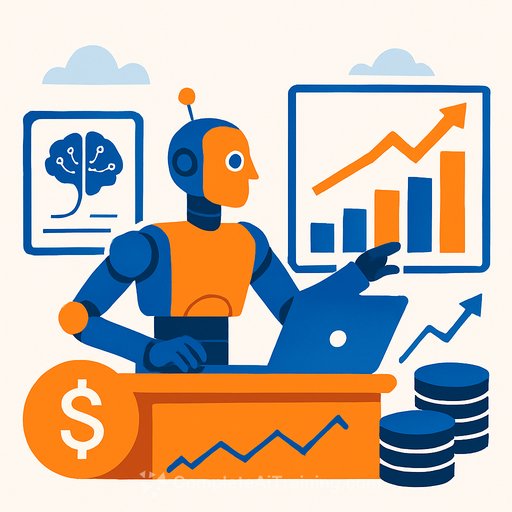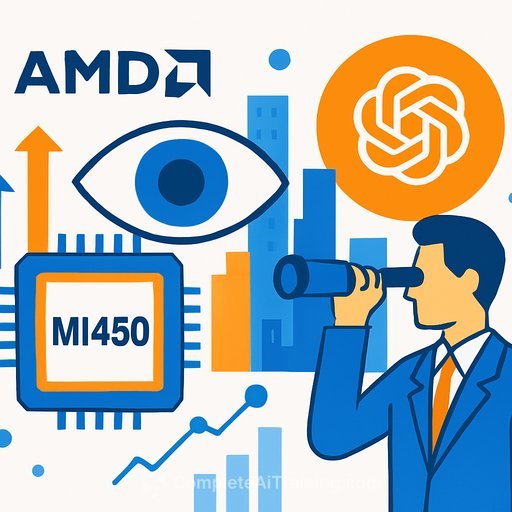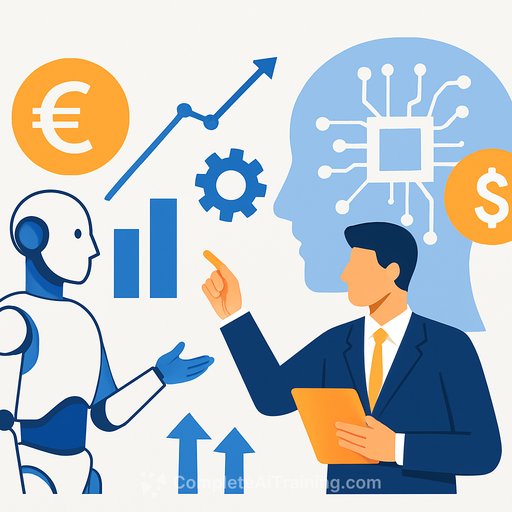Agentic AI vs. Traditional AI in Finance: How Agentic AI Surpasses Traditional AI
To grasp what sets Agentic AI apart in financial services, it helps to compare it with traditional AI and generative AI.
- Traditional AI (Rule-Based/Predictive): This type of AI is common in finance today, operating within fixed rules and patterns. It handles tasks like data retrieval for reports, transaction summaries, and automating routine workflows. While effective for predictable work, it struggles with the dynamic and often unpredictable nature of real-time financial environments.
- Agentic AI: Agentic AI takes a step further by blending the adaptability of large language models (LLMs) with the precision required in finance. Unlike traditional AI, Agentic AI acts autonomously, solves problems, makes decisions, and carries out complex financial operations with minimal human input.
Comparison Table
| Characteristic | Traditional AI (Rule-Based/Predictive) | Agentic AI in Finance |
|---|---|---|
| Decision-Making | Relies on predefined rules and past patterns; reacts to specific inputs. | Chooses actions independently, plans multi-step workflows, adapts to current data. |
| Learning Capabilities | Limited to manual retraining on common scenarios. | Continuously learns from experience and feedback; improves over time. |
| Adaptability | Rigid and inflexible; struggles with unexpected events. | Dynamic and adaptive; adjusts processes in real-time and flags anomalies. |
| Autonomy | Requires human input to finalize decisions. | Operates with minimal human involvement; takes independent action. |
| Common Applications | Basic fraud detection, alerts, rule-based bots, credit scoring. | Fraud prevention (e.g., freezing accounts), dynamic lending, real-time portfolio management, automated compliance, customer engagement. |
Benefits of Agentic AI in Finance
Agentic AI is reshaping finance by offering efficiency gains, enhanced customer experience, improved risk management, and new revenue opportunities. Its strength lies in autonomous action, continuous learning, and adaptive responses, all with minimal human oversight.
Productivity Gains Through Improved Efficiency
Agentic AI automates complex, decision-heavy tasks beyond the reach of traditional AI. It handles backend operations—data entry, transaction processing, and record keeping—reducing manual labor and errors. This frees teams for strategic work.
- Time Savings: Studies show up to 90% time savings on key processes, freeing 66% of team capacity for higher-value tasks.
- Faster Decisions: 33% of surveyed professionals note compressed time from decision to execution due to automation.
- Cost Savings: Automating accounts payable, for example, can yield over $1.3 million savings per $1 million invested across three years.
Enhanced Customer Experience and Personalization
Agentic AI offers 24/7, intelligent support that goes beyond scripted chatbots. It can manage inquiries, process forms, and route cases like dispute resolution or KYC updates automatically.
- Always Available: Handles customer requests anytime, reducing wait times and errors.
- Hyper-Personalization: Predicts customer intent and delivers solutions proactively.
- Cost Efficiency: By 2029, it’s projected to manage 80% of chat-based services, cutting operational costs by 30%.
Superior Accuracy and Real-Time Response
Agentic AI continuously ingests new data, updating forecasts and decisions without manual intervention.
- Real-Time Agility: Processes vast data instantly to detect patterns and respond to changing conditions.
- Improved Decision-Making: Enables rapid fraud detection and compliance responses.
Proactive Risk Control and Compliance
This AI monitors evolving rules and spots risks that human teams might miss, automating compliance and minimizing financial damage.
- Continuous Monitoring: Tracks compliance gaps dynamically.
- Fraud Prevention: Uses machine learning to detect unusual patterns.
- Cost Savings: Compliance automation can save millions annually.
New Revenue Streams
Agentic AI opens growth paths by enabling innovative business models and strengthening market agility.
- New Models: Firms can package AI-powered services as SaaS or APIs.
- Competitive Edge: Early adopters can quickly adapt to market shifts and customer demands.
Top 10 Agentic AI Use Cases for Finance Executives
Agentic AI impacts core and specialized C-suite roles by transforming processes and unlocking new capabilities.
Core C-Suite Roles
- CEO – Strategic Foresight and Market Adaptation: Gains real-time insights into markets and competitors for agile strategy shifts.
- CFO – Dynamic Financial Planning and Cost Optimization: Achieves accurate, up-to-date financial views and workflow digitization.
- COO – Intelligent Operations Orchestration: Automates complex workflows to boost operational resilience.
- CTO/CIO – AI Infrastructure and Secure Innovation: Builds and maintains the tech backbone for Agentic AI deployment.
Specialized C-Suite Roles
- CPO – Personalized Product Development: Drives innovation and delivers customized financial products.
- CCO – Compliance Automation and Risk Management: Tracks regulatory changes and flags operational gaps continuously.
- CRO – Proactive Risk Management: Enables real-time risk detection and mitigation.
- CDO – Automated Data Governance: Establishes data strategies and analytics frameworks with AI support.
- CLO/General Counsel – Legal Compliance and Contract Analysis: Automates regulatory research and contract review.
- CSO/CISO – Cybersecurity and Threat Mitigation: Detects cyber threats through anomaly identification.
The Future of Agentic AI in Finance
Agentic AI is moving towards more interconnected and autonomous financial systems with significant impact on operations and competition.
Super Agents
These next-level AI systems will coordinate multiple specialized subsystems, managing complex financial tasks seamlessly.
Integrated Decision Networks
Agentic AI aims to become an invisible layer across financial operations, enabling autonomous, networked decision-making.
New Business Models and Market Dynamics
It will fuel growth by enhancing existing revenue and creating new streams previously unattainable.
Human-AI Collaboration
Future finance relies on effective partnerships between humans and AI, combining strengths for better outcomes.
Partnering for Agentic AI Development
Financial institutions exploring Agentic AI should work with trusted experts who understand the fast-moving technology landscape. This ensures projects harness AI’s full potential efficiently and securely.
FAQs
Q: How can Agentic AI improve financial decision-making?
A: It analyzes large datasets independently, identifies patterns, and delivers actionable insights in real time.
Q: How does Agentic AI change banking operations?
A: It decentralizes services, automates complex workflows, and increases operational flexibility.
Q: How does Agentic AI support financial institutions?
A: It enhances analytics and automation in finance tools and customer engagement platforms.
Q: What impact will Agentic AI have on the future of finance?
A: It will make finance more adaptive, personalized, and resilient.
For those interested in building skills around AI in finance and product development, explore courses at Complete AI Training for focused learning paths.
Your membership also unlocks:






